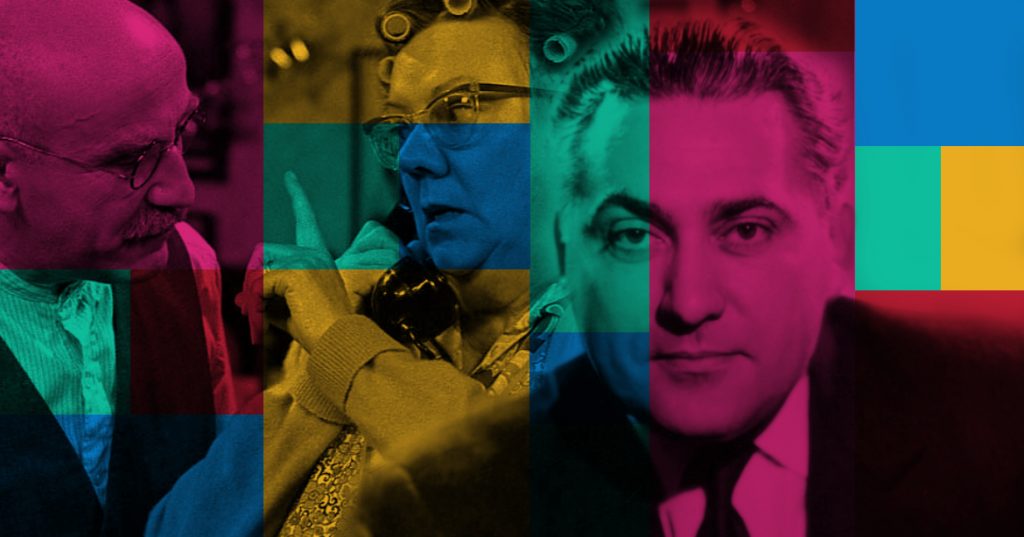Viewers, the fact is you were looking at yourselves
The BBC has cancelled Till Death Us Do Part after outrage from Mary Whitehouse; Milton Shulman has views on this

This article contains unacceptable words, used in context
THE fascination at Alf Garnett, the monstrous hero of the BBC’s Till Death Us Do Part, lay in his ability to act as a distorting mirror in which we could watch our meanest attributes reflected large and ugly.
Like some boil on the back at the neck that one cannot resist stroking or touching, this social aberration demanded the nation’s attention.
Some 18 million viewers — half of Britain’s adult population — watched him weekly wallowing in the hates and fears and prejudices most of us have tucked away in some genteel niche of our psyche.
Alf’s views on coons, kikes and wags; his reflections on Labour Party politicians; his suspicion of anything new like transplant operations, his ignorant superstitions, his insensitivity to beauty, his blatant hypocrisy can be seen and heard most days in most pubs, factories and boardrooms in the land.
Aggressive
Even his conventional virtue — his faith, his patriotism, his loyalties — have all been acquired tor the wrong reasons. His religion is motivated by fear at a vengeful God; his admiration of the Queen, by snobbery; his passion for West Ham, by a need for aggressive self-fulfilment.
Fortunately, there are few of us who possess all of Alf’s bulging portmanteau of hates and prejudices. But it is only the saint among us who does not share at least one.
The difference between Alf and most of us is that he brandishes his decadent and violent ideas in the fout-mouthed linguistic setting that suited them best. He was too uncultivated and ignorant to realise that if he disguised them under a veneer of propriety, they would have been acceptable in some of our best drawing-rooms.
Perhaps the most disconcerting aspect of Alf’s existence is that he should be a member of the working-classes. Ever since Rousseau’s “noble savage,” liberal humanitarians have believed that given the right social conditions, the best in humanity would emerge from the lowest orders.
They had long ago given up the middle-classes and the aristocracy as too corrupted by self-interest to ever strive unduly for a broadening of the human spirit.
It would be expected that a Prussian Junker like Ludendorff could be described as “a man blind in spirit. He had never seen a flower bloom, never heard a bird sing, never watched the sun set.”
And it was natural that the epitome of a nation’s xenophobia, narrow-mindedness, obtuse attitudes should have been that red-fared, bloated representative of the upper middle-class, Colonel Blimp.
But the proletariat was better than that. So the Russian Revolution and the Welfare State set out to prove. Well, we know what happened in Russia.
Could it be possible that decades of literacy, universal suffrage, full employment, trade union protection and governmental paternalism could spawn a monster like Alf Garnett?
Sadly, it is only too true. The millions who laughed at Alf Garnett weekly knew only too well that it was true. And it is in reminding us how far we still have to go before any Utopian ideals about ourselves and our society can be remotely realised that Johnny Speight’s creation has succeeded in providing on TV both a chastening and enlightening experience.
No one can deny that some of the recent episodes of Till Death Us Do Part showed signs of tired flair and exhausted imagination. But even the worst ones were funnier, more stimulating and more nerve-provoking than 95 per cent. of so-called TV comedy.
The nation owes it, creator Johnny Speight, and its cast, Warren Mitchell, Dandy Nichols, Anthony Booth and Una Stubbs, a debt of gratitude.
But when a series as significant as Till Death Us Do Part leaves the air, it is important that a critic investigates the nature of its going.
Smothered
Was Alf Garnett pushed off the BBC or did he die a creative natural death? If Johnny Speight is to be believed, Alf was smothered by an artistic climate in which he could not survive.
“We have been irritated by a number of idiotic and unreasonable cuts,” he said. “The trouble has been since Lord Hill’s arrival at the BBC and I could be the victim of new policies. I would write another series for the BBC but only it this censorship was stopped.”
What evidence, then, is there that Till Death Us Do Part has gone too far in its use of unseemly language, its derision of politicians, the monarchy, foreigners, its shocking of sensibilities over such topics as religion sex and the family?
Judged by viewing figures, only a tiny fraction of the nation has been shocked enough by the Garnett family to stop looking at them.
This has by no means deterred pressure groups, like the one of which Mrs. Mary Whitehouse is secretary, from blazing away at the programme as a disgrace to the nation and a potential source of corruption.
Because in a comic discussion about the beginnings of man, the words “your bloody God” and “that rubbish, the Bible” were used, Mrs. Whitehouse’s association has demanded that the BBC be prosecuted for blasphemy.
In the event of a prosecution, would Mrs. Mary Whitehouse or the BBC be right as to what shocks and disturbs the nation?
The BBC in its Talkback programme, has provided some evidence of where viewers stand on programmes that its critics claim go too far in the way of permissiveness about language and taboo subjects.
An audience of 100, scientifically selected from the London Area by an independent firm, represents a statistical sample of the population by age, class, sex and earning power.
On the right of TV to upset and occasionally offend the nation, 80 per cent. agreed that it had that right. Did Alf Garnett stimulate racial prejudice? Ninety-five per cent said No. Were references to the Queen by Alf Garnett offensive? Ninety-seven per cent, said No. Was there a need for an independent viewers’ council? Ninety-two per cent said No.
These statistics, then, would seem to put paid to Mrs. Whitehouse’s constant claim that her body represents a majority, or even a substantial, number of viewers.
An incidental aspect of this affair is the fact that so many commentators have assumed that Lord Hill’s presence at the BBC has been responsible for this new censorious atmosphere. It may not be true — Lord Hill should let us know — but when Prime Ministers appoint politicians to be overseers of our beliefs and morals, suspicions will always be there.



